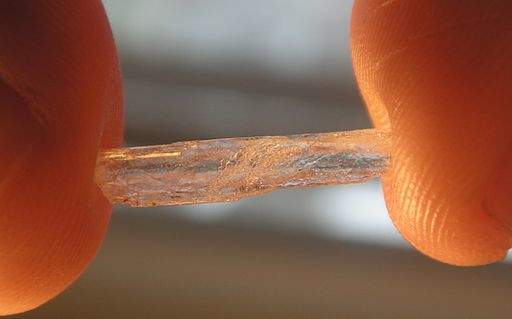
Biopharma MediciNova has announced that its Phase II clinical trial of MN-166 (ibudilast) for methamphetamine dependence failed to reach its primary endpoint.
The trial, which was recently completed by investigators at UCLA, aimed to determine the effect of MN-166 on methamphetamine abstinence during the final two weeks of treatment. It enrolled treatment-seeking individuals with methamphetamine dependence, classified by HIV serostatus. Participants were randomly assigned either 100mg MN-166 or placebo every day for a period of 12 weeks. Subjects also had bi-weekly clinical visits for counselling, urine drug tests and safety/medication adherence monitoring.

Discover B2B Marketing That Performs
Combine business intelligence and editorial excellence to reach engaged professionals across 36 leading media platforms.
The trial did not meet its primary endpoint of methamphetamine abstinence during the final two weeks of the treatment period, although MN-166 demonstrated favourable safety and tolerability in subjects. Additionally, there were no recorded severe adverse side effects compared to placebo. The most common treatment-related adverse events were gastrointestinal, which occurred with a higher frequency in the MN-166 group.
“We will conduct further analyses of the data with UCLA researchers, which will help us to better understand how to optimise study design and setting for any future clinical trials in substance dependence,” MediciNova CEO Yuichi Iwaki said.
“We will discuss the results with NIH/NIDA who provided the funding for this trial, the opioid dependence trials and the alcohol dependence trial. We plan to meet with FDA after we have data from the ongoing study of MN-166 in methamphetamine use disorder at Oregon Health & Science University.”
MN-166 is a licensed treatment for post-stroke complications and bronchial asthma, and has been on the market in Japan and Korea since 1989. It is a bioavailable, small molecule phosphodiesterase (PDE) -4 and -10 inhibitor and macrophage migration inhibitory factor (MIF) inhibitor. It works to suppress pro-inflammatory cytokines and promote neurotrophic factors, attenuating activated glia cells which are of central importance in certain neurological conditions.

US Tariffs are shifting - will you react or anticipate?
Don’t let policy changes catch you off guard. Stay proactive with real-time data and expert analysis.
By GlobalDataThe drug’s anti-neuroinflammatory and neuroprotective actions have been demonstrated in previous trials and form the basis of MediciNova’s investigation of the therapy as a treatment for neurodegenerative diseases such as multiple sclerosis, amyotrophic lateral sclerosis, and chronic neuropathic pain.
MediciNova is known for its development of small-molecule therapeutics for conditions with little or no current effective treatments. Also in the company’s pipeline are MN-001 (tipelukast) for the treatment of fibrotic diseases such as nonalcoholic steatohepatitis (NASH) and idiopathic pulmonary fibrosis (IPF), MN-221 (bedoradrine) for the treatment of acute exacerbations of asthma, and MN-029 (denibulin) for solid tumour cancers.





